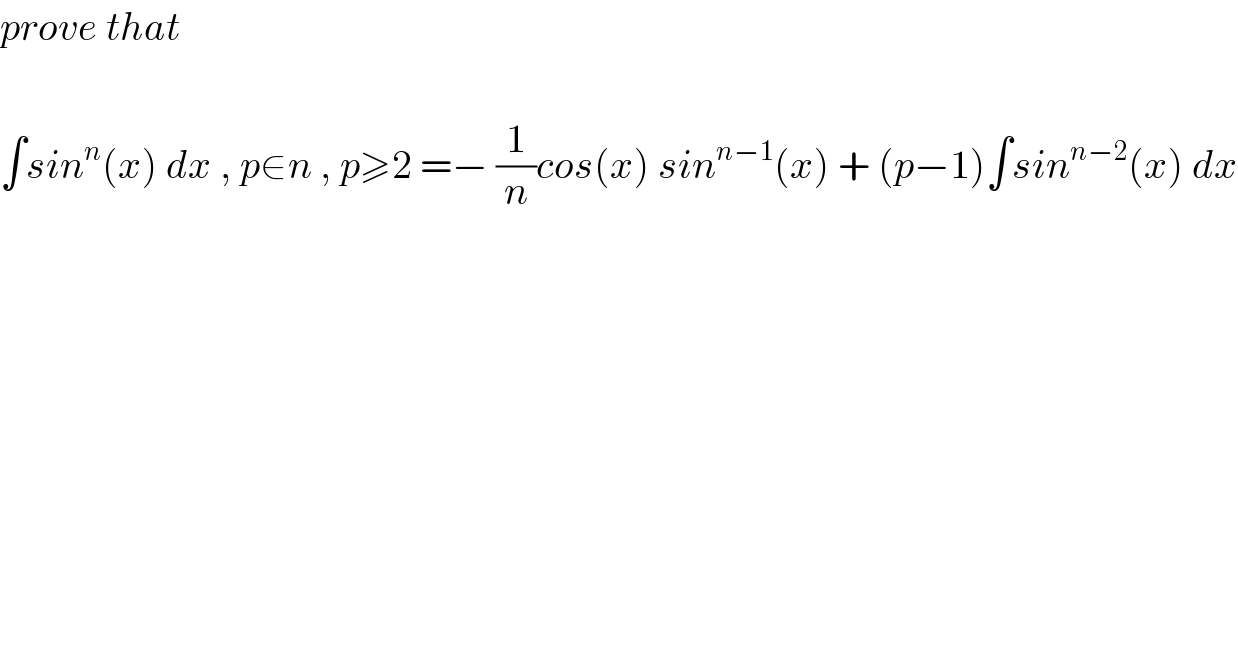Question Number 63566 by aliesam last updated on 05/Jul/19

$${prove}\:{that} \\ $$$$ \\ $$$$\int{sin}^{{n}} \left({x}\right)\:{dx}\:,\:{p}\in{n}\:,\:{p}\geqslant\mathrm{2}\:=−\:\frac{\mathrm{1}}{{n}}{cos}\left({x}\right)\:{sin}^{{n}−\mathrm{1}} \left({x}\right)\:+\:\left({p}−\mathrm{1}\right)\int{sin}^{{n}−\mathrm{2}} \left({x}\right)\:{dx} \\ $$
Commented by aliesam last updated on 05/Jul/19

$${thats}\:{right}\:{it}\:{was}\:{a}\:{typo} \\ $$
Commented by MJS last updated on 05/Jul/19

$$\mathrm{it}'\mathrm{s}\:\mathrm{not}\:\mathrm{true}.\:\mathrm{the}\:\mathrm{formula}\:\mathrm{is}\:\mathrm{for}\:\left({n}\geqslant\mathrm{2}\right)\in\mathbb{N} \\ $$$$\int\mathrm{sin}^{{n}} \:{x}\:{dx}=−\frac{\mathrm{1}}{{n}}\mathrm{cos}\:{x}\:\mathrm{sin}^{{n}−\mathrm{1}} \:{x}\:+\frac{{n}−\mathrm{1}}{{n}}\int\mathrm{sin}^{{n}−\mathrm{2}} \:{x}\:{dx} \\ $$$$\Rightarrow\:{p}−\mathrm{1}=\frac{{n}−\mathrm{1}}{{n}}\:\Leftrightarrow\:{p}=\mathrm{2}−\frac{\mathrm{1}}{{n}}\:\Rightarrow\:{p}\notin\mathbb{N}\wedge{p}<\mathrm{2} \\ $$
